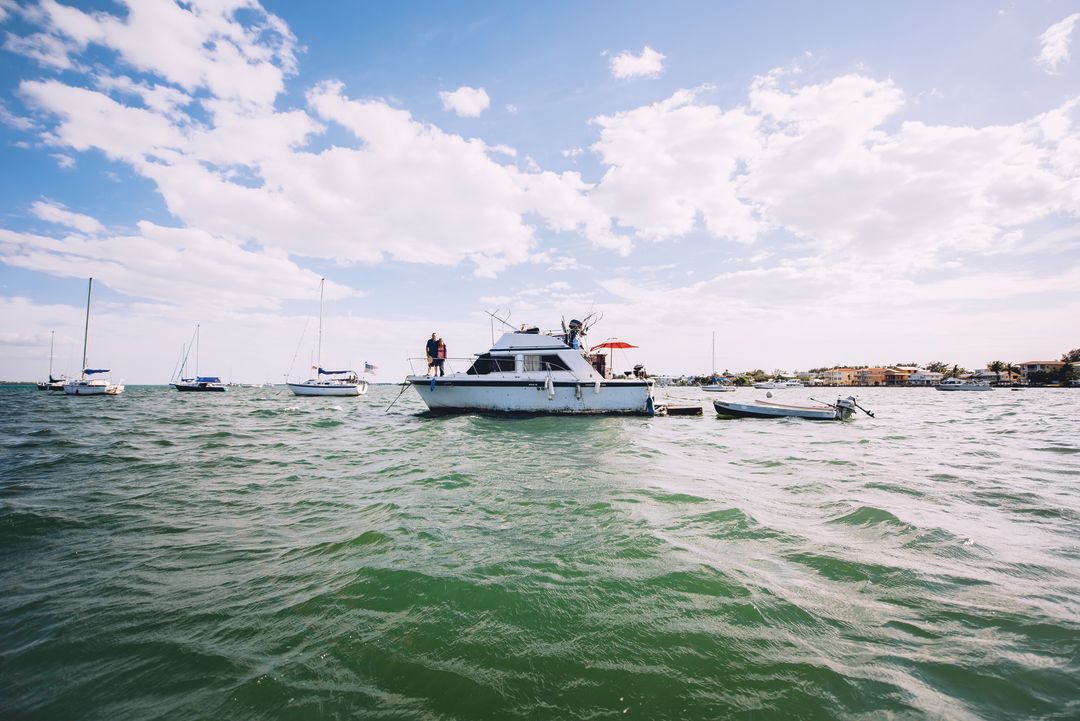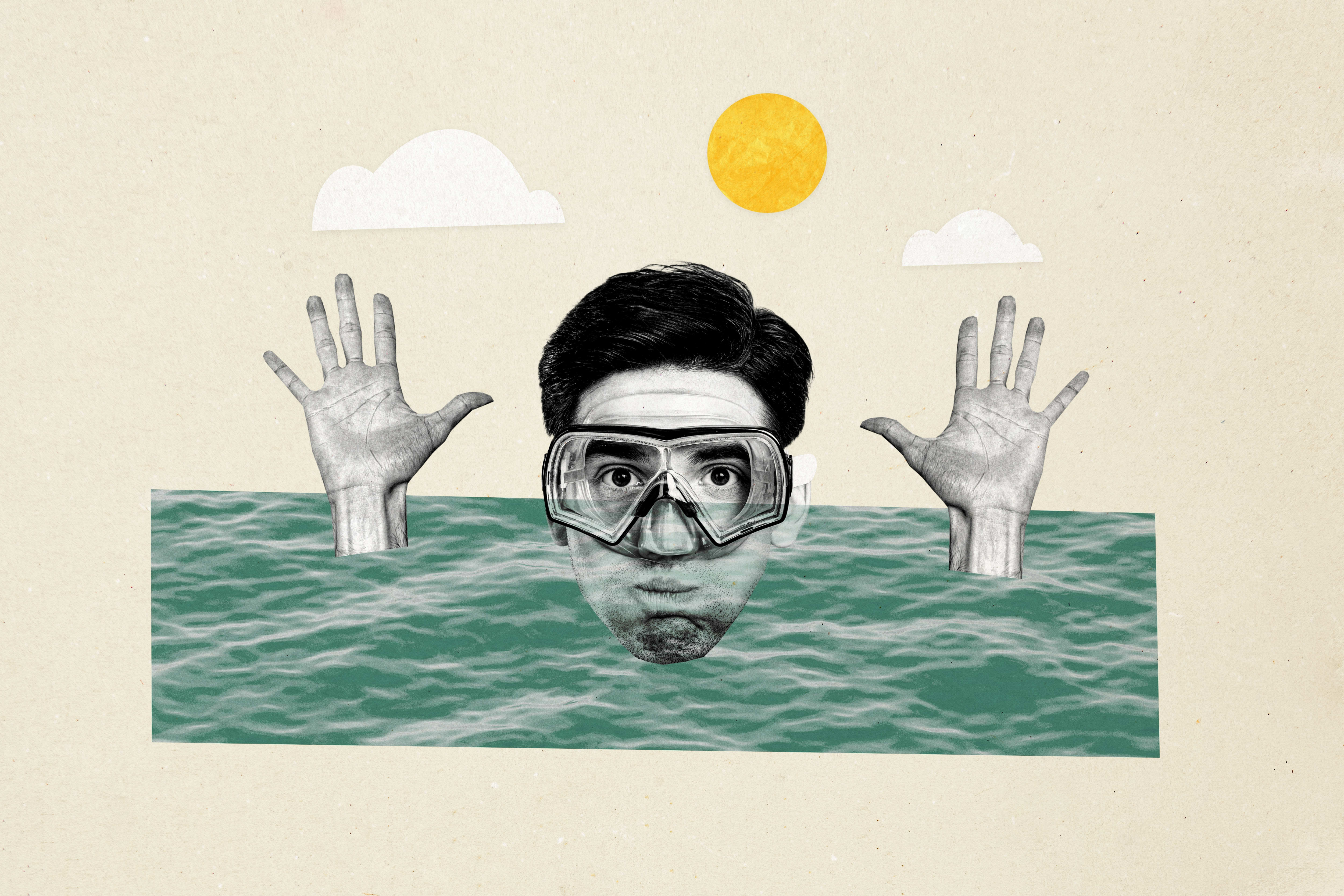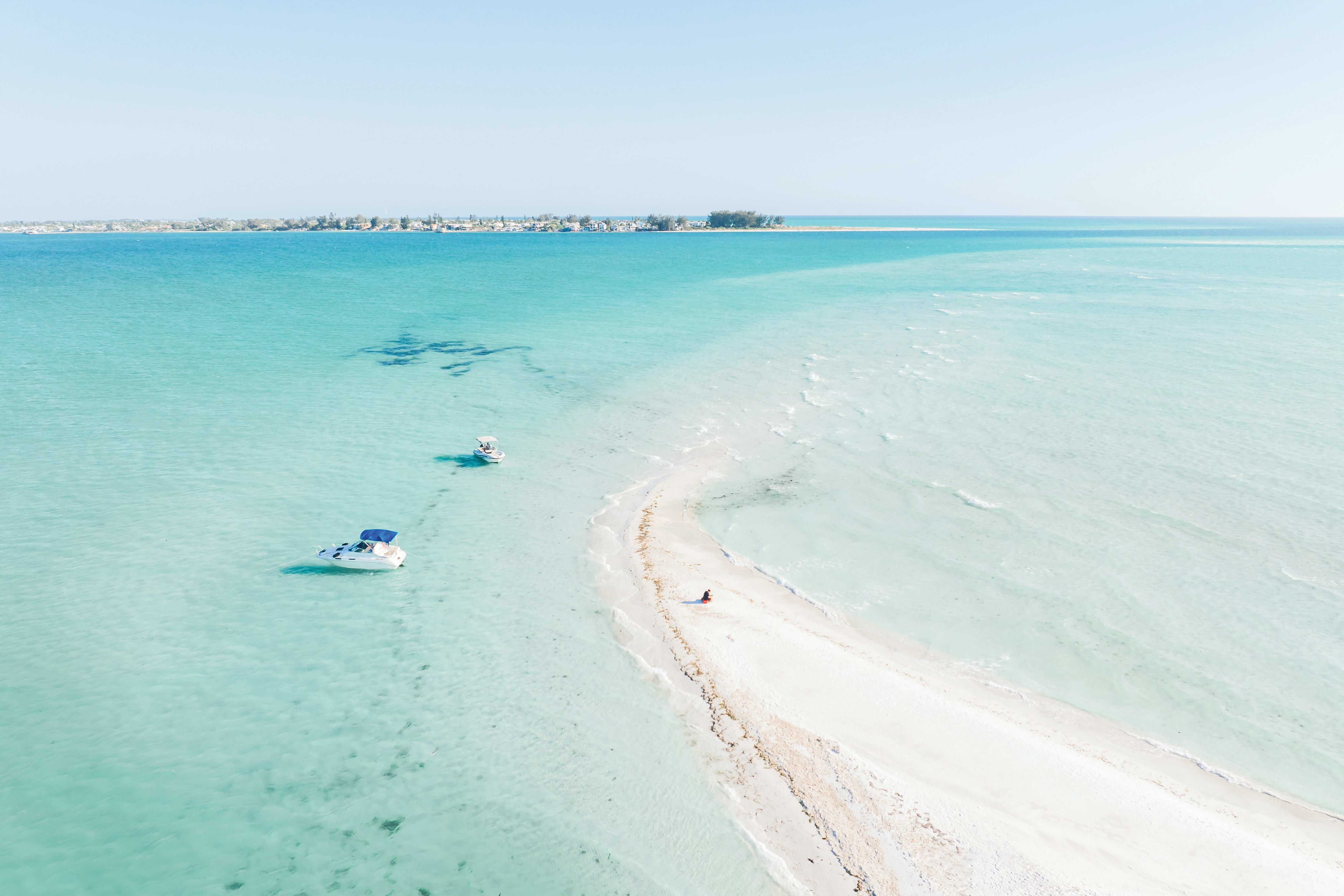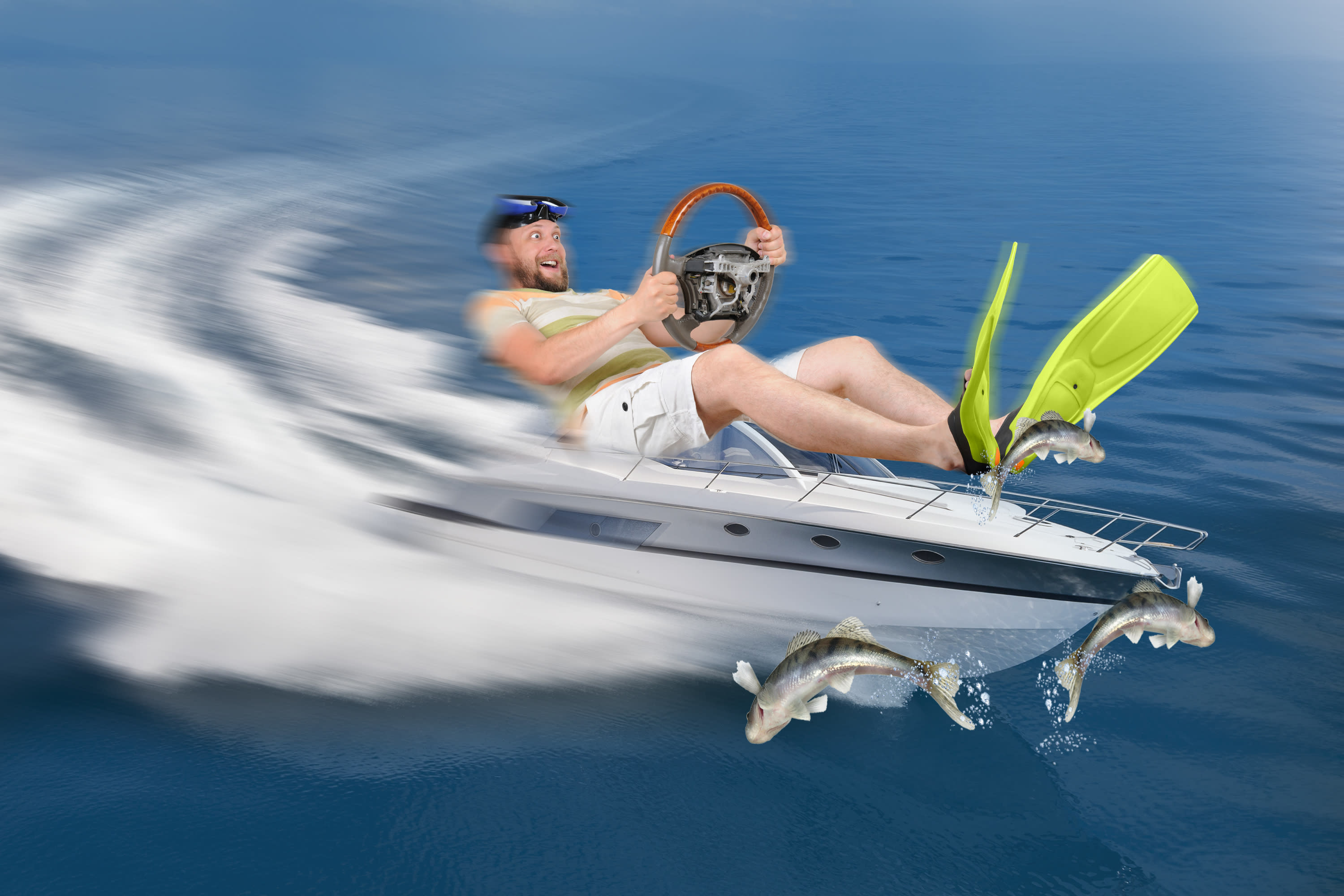Freedom is Sweet for the Liveaboards Off Bradenton Beach

For Jeremy and May Thomas, home is a 33-foot boat anchored off Bradenton Beach.
Image: Everett Dennison
At any given time, several hundred people in Sarasota and Bradenton are living aboard boats. Some live at marinas, with amenities like showers and restrooms, mail service, laundry and Wi-Fi. But others choose to live “on the hook,” away from civilized conveniences—and scrutiny.
Since 2004, Morgan Rothe has spent most of his time living aboard a sailboat off the Bradenton Beach Pier, where some 50 to 60 other boaters live off the hook.
“The marina is too expensive,” Rothe, who has thick, shoulder-length salt-and-pepper hair, explains. “The point is to save money.” There are other reasons to avoid marinas as well. “Sure, they’re more convenient,” Rothe says, “but you’ve got more people in your face. Out on the hook, you see wildlife. I see dolphins all the time. It’s your own little part of the world!”
Bradenton Beach attracts some troubled people, Rothe says. But the water is therapeutic. There’s solace in the waves, he says. “If you really love it, you’ll hang in there.”
Until a few years ago, Sarasota had an on-the-hook community living near Selby Gardens. Those boats often posed “significant problems,” says Sgt. Bruce King of the City of Sarasota Police Department, who oversees marine patrol.
“Slumlords on the water [were] renting out undocumented boats,” says King. “Some of the boats wouldn’t have moved anchor in three years, and their lines would be covered in feet of barnacles.” There were so many derelict boats, he says, there was a risk of lines breaking and boats colliding. And undocumented boats would sometimes sink during storms, leaving taxpayers to pay to have the boat removed and disposed.
To address those problems, Sarasota County, which is one of five counties in a state pilot program that allows them to make their own regulations about liveaboards, established an official mooring field at Marina Jack and prohibited boats in other places from anchoring for more than 90 consecutive days in the same spot.
“Since [then] the problem has gone away,” King says.
Some of those who used to anchor off Selby Gardens moved their vessels to Bradenton Beach, which is now the largest on-the-hook community in the region.
“I’ve been here 30 years and that anchorage has been there the entire time,” says Bradenton Beach police chief Sam Speciale. “It’s its own neighborhood, with people coming and going and leaders who look out for things.” Many of the boats are dilapidated and old, he says, a far cry from the romantic image of living on the water. “Some have been sunk and brought up and are loaded with mold. But those are legally navigable waters, and they can be there as long as they have the proper equipment,” he says.
Not everyone in the Bradenton Beach liveaboard community wants to talk to strangers, but Jeremy Thomas is welcoming and loquacious.
A 37-year-old marine mechanic from New Smyrna, Thomas has a blond ponytail and smokes one hand-rolled cigarette after another. A self-described Florida Cracker, he says he’s a fourth-generation fisherman who was “probably conceived on a boat.” He lives with his wife, May, 42, on a forest-green 33-foot Uniflight from 1978 with a flybridge and twin 350 Chevrolet small block engines.
Jeremy and May moved to the water in 2011 because of the recession. “We lived in a one-bedroom off Cortez that ran us $900 a month and we couldn’t afford it anymore,” Jeremy says.
Since 2011, the couple has slept on land only once, during a cold spell when their space heater broke down. Before they lived aboard, they held down full-time jobs, says Jeremy. He worked as a commercial fisherman and as a handyman, including at an RV camp. May was a kindergarten and substitute teacher. Now they work part-time because their expenses are low. “We don’t have to pay property tax,” Jeremy says.
Much of the on-the-hook economy runs on barter and communal arrangements. People share boats, lend out engines, feed each other when someone is struggling and exchange services.
“Life isn’t easy on the hook,” Jeremy says. “There’s something to fix every day.” He’s also a one-man garbage collector, picking up all sorts of debris drifting at sea.
And there are public bathrooms but no bathing facilities at the Bradenton Beach. “I miss long showers,” May says. They have to haul water from land to their boat on one of their dinghies if they want to bathe.
Jeremy says the boaters off Bradenton Beach keep each other safe. Last year, when a boat caught fire, the Coast Guard didn’t have a hose and the fire truck’s water couldn’t reach far enough from the Cortez bridge. Jeremy dragged the owner out of his burning boat and doused the fire with pails of seawater. In December, a couple drove their car off the Cortez bridge, and Jeremy was the first at the scene and pulled them out of the water.
Still, he says, the city doesn’t seem to want them there, and the boaters get hassled by the police.
Police Chief Speciale denies that. “We’ve had our share of issues—like people who rent out derelict boats—but that’s true of any neighborhood,” he says. “But it’s not that bad.”
But whatever their challenges, says May, “I’ve never been so happy since we moved out here.”
“I love it out here,” Jeremy agrees. “The rocking of the boat puts you to sleep, you see the sunset, the sunrise, and people are nicer out on the water.” He pauses to reflect, and the soft sounds of pots and pans chiming from the swaying of the boat fills the silence. Then a tourist on a jet ski blasts by the starboard side of the boat and Jeremy swears and shakes his fist at him.



